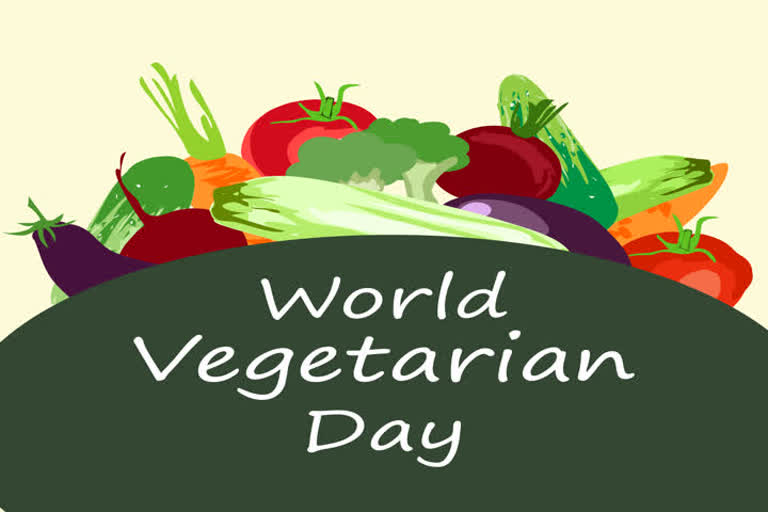Choosing vegetarianism is gradually becoming a trend in order to avoid cruelty faced by animals to be served on plates. Therefore, every year on 1st October, World Vegetarian Day is celebrated in order to promote vegetarianism and spread awareness about how it benefits health and the environment. The most common source of vegetarian foods is plants based diet. This day was first observed by the North American Vegetarian Society (NAVS) in 1977.
Types of Vegetarians
Vegetarians can be categorized into 3 broad categories, as stated by the National Health Portal (NHP) of India:
- Vegan: This diet includes only plant-based food. It does not include any animal protein or animal by-products such as eggs, milk, or honey. It generally includes raw fruits, vegetables, legumes, sprouts, and nuts.
- Lacto-vegetarian: includes plant food and dairy products but not eggs.
- Lacto-Ovo vegetarian: includes plant food, dairy products, and eggs.
Having A Balanced Diet
Whichever type of a vegetarian you choose to be, you must ensure that you consume a healthy balanced diet to get sufficient nutrients for the proper functioning and growth of the body. NHP suggests the following foods and the vitamins or minerals that can be found in them:
- Vitamin B12:
Dairy products, eggs. Fortified cereals, bread, soy, and rice drinks - Vitamin D:
Milk and sunlight - Calcium:
Dairy products, dark green leafy vegetables, broccoli - Protein:
Pulses, dairy products (milk and cheese), eggs, tofu, and other soy products, dried beans, and nuts - Iron:
Eggs, dried beans, dried fruits, whole grains, leafy green vegetables - Zinc:
Wheat germ, nuts, fortified cereal, dried beans, and pumpkin seeds
Benefits of Adopting Vegetarianism
Being a vegetarian has its own advantages and here are a few of them as suggested by NHP:
- It lowers the risk of major heart diseases and cancers.
- It boosts metabolism and thus helps in lowering body weight.
- Vegetarian diet comprises whole grains, nuts, fruits, and vegetables, which supply fiber, antioxidants, vitamins as well as essential minerals.
- Avoiding meat is one of the best ways to cut down your fat consumption.
- Cholesterol levels are much lower in vegetarian meals as compared to non-vegetarian meals.
- It helps to save animals.
“A well-planned vegetarian diet can meet the nutritional requirement needs of people of all ages, including children, women, and elderly people. The key is to be aware of your nutritional needs so that you plan a diet accordingly.”
Steps To Becoming A Vegetarian
- Make up your mind and understand why you want to become a vegetarian.
- Resist your temptations to eat meat, fish, etc.
- Replace ingredients and choose vegetarian options, like choose cheese, tofu, or soya chunks.
- Read labels on food items for ingredients.
- Look out for plenty of delicious vegetarian recipes available online.
- Ask your vegetarian friends for some of the better options and go out with them to try some mouth-watering vegetarian dishes.
The vegetarian menu is very fulfilling and diverse and there are thousands of dishes to choose from. If you are not sure whether a vegetarian diet would suffice the nutrition requirements of your body or not, you can consult an expert dietitian or nutritionist to help you out with it.



